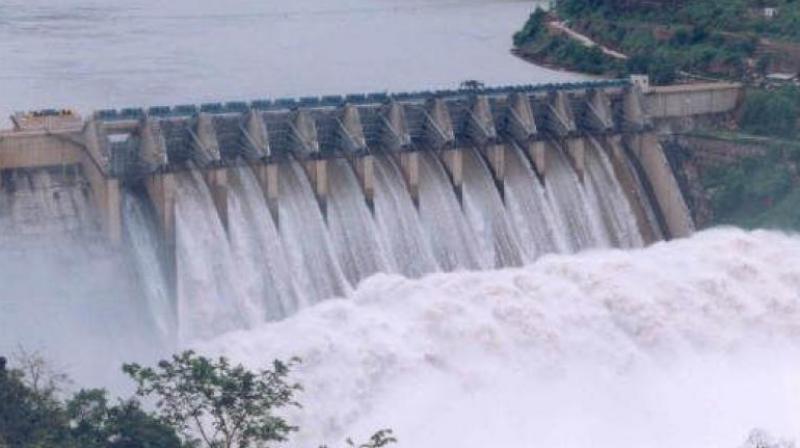Rivers dump more elements

Visakhapatnam: The concentration of elements such as iron, potassium and calcium are drastically increasing in the West Central Bay of Bengal along the Andhra Pradesh coast with the monsoonal runoff from major rivers dumping more amounts of these elements into it.
This came to light in the elemental analysis of the sediment sample (4.12 cm) collected from the Krishna-Godavari marginal area. The study was done with the help of particle induced X-ray emission (PIXE) technique using a 3 MV Pelletron accelerator to excite samples with protons of 2.5 MeV energy and beam current. The research study was conducted by Andhra University Nuclear Physics department faculty P.V.L. Narayana.
“The study helped to understand the rate at which the elements accumulated over the years. We used Beryllium method to find the half age of the elements. The concern is that the accumulation of the samples is high in recent years. This shows how the aquatic ecosystem is rapidly changing,” Professor Narayana said.
The study of sediments deposited in the bay formed by the monsoon runoff from the rivers is very important to improve coastal management strategies and to assess the recent trend of pollutant inputs. But, very few studies are being taken up.
“The elements present in the core sediments fluctuates owing to multiple processes, including changes in provenance and weathering intensity caused by monsoonal climate variability and sea level fluctuations, resulting in a varying shelf area and the structure of Krishna river basin. The accumulation of these elements in the sediment core was found high in the upper (O – 150 cm) and decreased when the depth increased,” he said.
Constant monitor of water quality must
The results of the elemental analysis of the sediment sample collected from the Krishna-Godavari marginal area also suggest that special attention must be given to the issue of element remobilisation beca-use a large portion of elements in sediments is likely to be released back into the water column.
Therefore, constant monitoring of water quality is needed to record any alternation in the quality and mitigate the outbreak of health disorders and the detrimental impacts on the aquatic ecosystem. The disturbance in an aquatic ecosystem with growing pollution is affecting the fish catch too.
President of Visakha Dolphin Boat Owners’ Association Ch Satyanarayana Murthy said the best and most demanded varieties of fish, prawn and crabs had almost disappeared from the coast of Andhra Pradesh and most of the boat operators from AP (Vizag, Kakinada and Nizama-patnam) were going as far as Paradeep.
Untreated effluents from pharmaceutical industries flowing into the sea from Srikakulam to Vizag have affected the marine life on the north coast region whereas emissions from aqua farms in East and West Godavari districts and oil rigging off Kakinada have added more pollution, he added.

